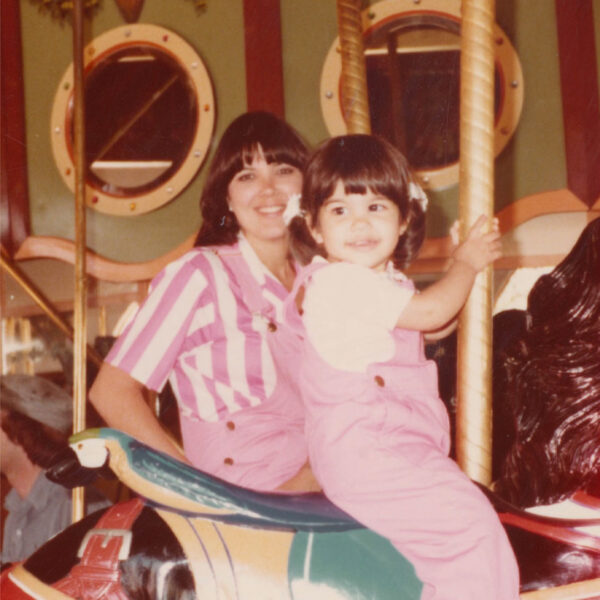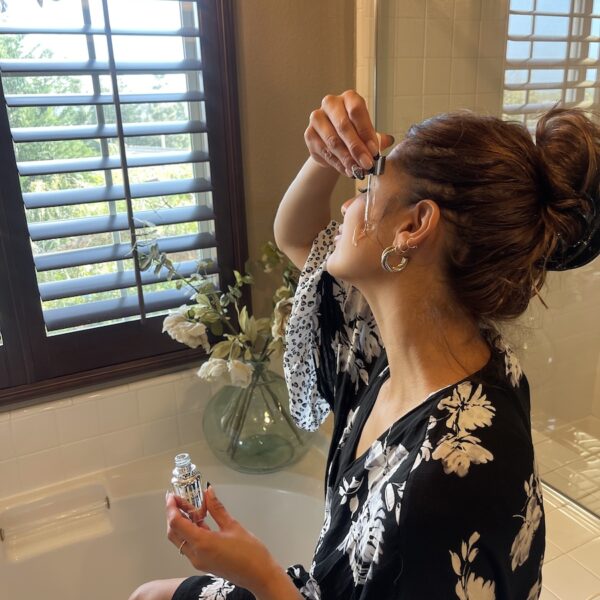Claire Byrne, a heartbreak and love-finding coach, answers a Poosh reader who wonders why she is reluctant to tell some friends that she’s moving in with her boyfriend.
“Why am I scared of what others think of my relationship?”
I have been dating my boyfriend for almost six years now, and we’re about to move in together.
Although we’ve developed a strong healthy relationship, during our youthful years, we tended to be a little unstable and erratic. With (of course) some growing pains, we’ve matured and outgrown toxic tendencies in our relationship.
However, I suddenly feel reluctant to tell old friends we’re moving in together. Any recent friends made within the past two years have shown nothing but love and support. But for some reason, long-term friends we knew in our teen years, who witnessed the beginning stages of our relationship, make me feel nervous about our moving announcement.
What does it mean when you’re scared to tell old friends about relationship progression? What does it mean when you feel guilt? Can stains and bruises heal over time?
Genuinely curious for all the young/long-term couples out there.
Dear Scared Of What Others Think,
First of all, congratulations on this next big step in your relationship. What an exciting time!
Second, I love this question because I think that no matter how much work we do on ourselves and our relationships, there’s a very human tendency within most of us to care about what others think (especially the people we love).
So, for sure, you are not alone.
I’d like to start with getting clear on why you care what your long-term friends think instead of worrying about what it all means.
I understand that you’ve asked me why, but I’m gonna toss that baton back to you with these questions:
Are you afraid they could be right?
Are you afraid you’ll lose them as friends?
Are you afraid that their judgment of this move will always be an elephant in the room? (Like a literal room in your home?!)
My hunch is although you’re really confident about this next step, it would feel even better to have support from the people you love who have known you and your partner the longest.
If this is the case, 1) who could blame you, and 2) who could blame them for being concerned?
Just as it’s human to care what others think, isn’t it also human to be concerned for loved ones who have unraveled in their relationships, only to stay in them?
Here’s another perspective:
In the last seven years that I’ve been a heartbreak coach, I’ve never once seen a toxic relationship transform into a fabulous, thriving, non-toxic one, especially with people in their late teens into their mid-20s.
I don’t say this to project doubt onto your relationship at all. (I’m genuinely getting great vibes over here, and I’m rooting for you both!) But I’m not surprised you have some nay-sayers in your sphere, given your age, your friends’ ages, and your history with your partner.
You are still relatively young (speaking from a 43-year-old’s perspective over here), and as incredible as it is that you and your partner have healed and grown so much, your peers may not have done similar work just yet. Therefore, they may not understand how it’s possible for you and your partner to get from where you were to where you are now.
You already know the answer to the question, “Can stains and bruises heal over time?” because look how far you and your partner have come. The thing is, you only have control over healing your stains and bruises, not your friends’ stains and bruises.
All that said, here are three suggestions that will help you manage your discomfort, even though I recognize you didn’t directly ask for them.
1. Allow them to be concerned/judge.
It’s not a fun feeling, but there is so much power and freedom when you consciously let people think what they will about you and your relationship, especially when you are feeling so confident about this next big step in your life.
Recognizing where they’re coming from, what they’ve observed, how much they care about you (my assumption is they do), and potentially not knowing the ins and outs of all the strides you’ve made in your relationship, can help you allow space for their point of view.
2. Allow yourself to feel the disappointment and guilt.
It can be both an exciting time in your relationship and a disappointing moment in these long-term friendships. Don’t let my first suggestion of allowing them to judge cover your sadness on this matter.
Of course you’re upset!
But giving yourself permission to feel bad/guilty, and giving them permission to judge, you will actually make yourself care less sooner than later. It’s an ironic practice that will eventually become your superpower.
3. Have a vulnerable, raw, and honest conversation with your friends.
If these friends are really important to you, talk to them. Say something along the lines of: “Hey, so I’d rather address this directly than have it be an elephant in the room. My partner and I are moving in together, and I feel nervous to tell you because my guess is you won’t approve. I understand you witnessed us at a really awful point six years ago, but we’ve grown a lot as individuals and as a couple. I know I don’t need your permission, but for what it’s worth, your support and trust in me and us would really mean a lot.”
Address this from a place of genuine love for your friends, not a place of needing to convince them that you’re making the right decision. You already know this move is right for you, but all you’re doing is simultaneously owning your very human desire for their love and support.
Whether they change their tune or don’t, it is my hope that you’ll find relief in dealing with the very natural mix of emotions that come up when you’re about to embark on a big change, even if it’s an exciting one.
Best of luck on this new chapter!
If you decide to take me up on this advice, I’d love to hear how it all unfolds.
Love,
Claire
Shop our relationships collection:
You ask, we answer. Send your relationship questions to [email protected], and one of our experts may just answer them in an upcoming column.







































